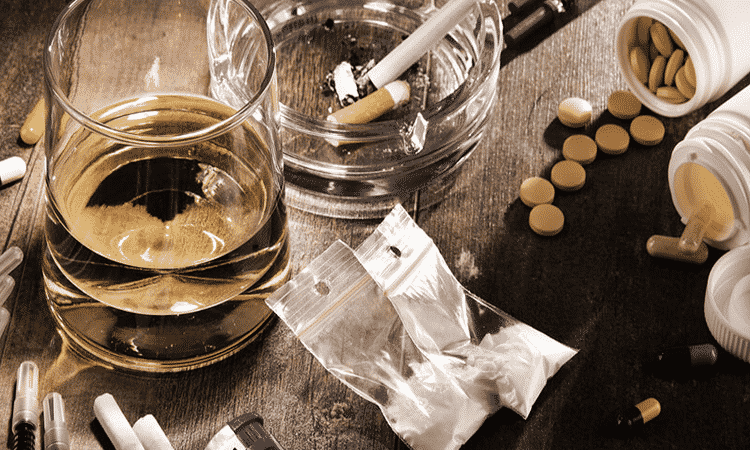Drug abuse and addiction is an affliction that has deteriorated the lifestyle of many around us. It has become almost rampant in some regions which has resulted in the establishment of so many rehabilitation centers. One such example is the Ventura County drug treatment programs that provide a wide array of drug addiction solutions.
Before focusing on the specific aspects of various drug treatment programs, we’ll look into a generalized view and the benefits offered by these drug programs.
General Approach of Recovery Programs
There are many drug treatment programs, each offering a different route to help any struggling individuals battle their inner demons and seek salvation. Though these approaches might be different, tackling various aspects, we will discuss some general aspects of all these programs cumulatively. Here are key roles and objectives of drug treatment programs:
Assessment and Diagnosis: Drug treatment programs begin by assessing an individual’s substance abuse history, health, and mental well-being. A comprehensive evaluation helps determine the appropriate treatment plan.
Detoxification (Detox): Many programs offer medically supervised detoxification to help individuals safely withdraw from drugs or alcohol. This process can be physically and psychologically challenging, and medical supervision is essential to manage withdrawal symptoms. Treatment through Detox drugs Ventura are one of the most commonly opted routes of recovery.
Individualized Treatment Plans: Tailored treatment plans are created to address the specific needs of each individual. These plans consider the type of substance used, the severity of addiction, co-occurring mental health issues, and personal circumstances.
Therapy and Counseling: Behavioral therapy and counseling are fundamental components of drug treatment programs. These sessions help individuals understand the root causes of their addiction, develop coping strategies, and learn essential life skills.
Group Therapy: Group therapy sessions provide a supportive environment where individuals can share their experiences, gain insights from peers, and build a sense of community and accountability.
Medication-Assisted Treatment (MAT): In cases of opioid or alcohol addiction, MAT may be employed. It involves the use of medications, under medical supervision, to reduce cravings and withdrawal symptoms.
Dual Diagnosis Treatment: Many individuals with substance use disorders also have co-occurring mental health issues. Treatment programs address both addiction and mental health concerns, ensuring comprehensive care.
Relapse Prevention: The threat of relapse is quite a fr Drug treatment programs teach individuals how to identify triggers and develop strategies to prevent relapse. These skills are essential for maintaining long-term recovery.
Education: Programs provide education on the effects of drugs and alcohol, as well as the consequences of addiction. This knowledge helps individuals become aware of drugs and other such addictive substances and ways to avoid such urges highlighting the underlying cause and effect of these addictions.
Supportive Environment: Treatment programs offer a supportive and structured environment where individuals can focus on their recovery without the distractions and temptations of the outside world.
Aftercare and Continuing Support: Successful recovery often requires ongoing support. Many programs offer aftercare services, such as support groups and counseling, to help individuals maintain their sobriety.
Holistic Approaches: Some treatment programs incorporate holistic approaches, including fitness, nutrition, mindfulness, and alternative therapies, to promote overall well-being.
Family Involvement: Addiction affects not only the individual but also their family. Some programs include family therapy and education to help repair relationships and build a strong support system.
Legal and Vocational Assistance: For individuals facing legal issues or job-related challenges due to their addiction, programs may offer guidance on addressing these issues and getting back on track.
Community Reintegration: Helping individuals reintegrate into their communities as sober and productive members is a crucial aspect of many programs. This includes assistance with housing and employment.
Prevention and Education: Many drug treatment programs engage in community education and prevention efforts to raise awareness about substance abuse and addiction.
Types of Drug Treatment Programs
All these drug addiction treatment programs take a different approach to achieve the common objective of helping users to liberate themselves from the clutches of drug abuse. Following are the different treatment programs designed to help people struggling with substance abuse issues.
Inpatient Rehabilitation (Residential Treatment): Inpatient programs provide 24/7 care in a structured, residential setting. They are ideal for individuals with severe addiction or those who require a stable and controlled environment. Treatment typically includes detox, therapy, counseling, and educational components.
Outpatient Rehabilitation: Outpatient programs offer more flexibility and allow individuals to live at home while attending treatment sessions during the day or evening. They are suitable for those with less severe addiction or those who have completed inpatient treatment.
Partial Hospitalization Program (PHP): PHPs offer intensive, structured treatment during the day, with individuals returning home at night. These programs are well-suited for those who need ongoing care but don’t require 24/7 supervision.
Intensive Outpatient Program (IOP):IOPs provide a higher level of care than standard outpatient programs. They involve more frequent therapy and counseling sessions, making them suitable for individuals with moderate addiction.
Medication-Assisted Treatment (MAT) Programs: MAT programs use medications, under medical supervision, to help individuals reduce cravings and withdrawal symptoms. These programs are commonly used for opioid and alcohol addiction. These medicines have to be administered carefully by professionals to avoid the patient getting addicted to them as well.
12-Step Programs: 12-Step programs, such as Alcoholics Anonymous (AA) and Narcotics Anonymous (NA), are fellowship-based support groups that follow a structured approach to recovery. They emphasize personal responsibility and mutual support.
Non-12-Step Programs: Some recovery programs offer alternatives to the traditional 12-Step approach. These programs may focus on cognitive-behavioral therapy, holistic healing, or other therapeutic modalities.
Holistic and Alternative Programs: These programs integrate holistic approaches such as yoga, meditation, acupuncture, and nutrition into the recovery process. They emphasize overall well-being and balance.
Dual Diagnosis Programs: Dual diagnosis programs are designed for individuals with co-occurring mental health disorders and addiction. They provide integrated treatment for both conditions.
Gender-Specific Programs: Some recovery programs are designed exclusively for men or women. Gender-specific programs address unique challenges and needs that may arise during recovery.
Teen and Adolescent Programs: These programs cater to the specific needs of teenagers and adolescents struggling with substance abuse. They often include family involvement and education.
Long-Term Residential Programs: Long-term residential programs offer extended care, often lasting six months to a year or more. They are suitable for individuals with chronic, long-term addiction.
Faith-Based Programs: These programs incorporate religious or spiritual elements into the recovery process. They may be aligned with specific faith traditions or offer a spiritual approach to healing.
Veterans’ Programs: Designed for military veterans, these programs address the unique challenges veterans may face related to addiction, trauma, and post-traumatic stress disorder (PTSD).
Recovery Communities: Recovery communities, such as sober living houses or halfway houses, offer a supportive environment for individuals transitioning from treatment to independent living.
In conclusion, drug treatment programs act as a resort and a lifeline for people who aim to break-free from the bondags of addiction. These programs provide the tools, resources, and support necessary for recovery, helping individuals regain control of their lives and break free from the cycle of substance abuse.



